#Tenant Representation
Explore tagged Tumblr posts
Text
Why Pure Tenant Representation Delivers Superior Commercial Leasing Results
Discover why pure tenant representation delivers superior commercial leasing results. Expert advocacy ensures better terms, rates, and property selections.

#Tenant Representation#Tenant Representation Services#Tenant Representation Melbourne#Tenant Representative Melbourne#Commercial Tenant Representation
0 notes
Text
Skyline Properties – Brokering outside the box: Off-market deals, ground leases and customized canvassing : NYREJ
Manhattan, NY Skyline Properties is a locally based brokerage firm that handles many different property types, including ground leases, commercial buildings, ap… — Read on nyrej.com/company-of-the-month-skyline-properties-brokering-outside-the-box-off-market-deals-ground-leases-and-customized-canvassing
View On WordPress
#amir Korangy#bob knakal#brokerage#Building permits#Cap rate#Cash flow#Commercial mortgage-backed securities#commercial real estate brokers#Common area maintenance fees#erg#facebook#Investment sales#investment sales broker#khodadadian#Landlord representation#live plus income buildings#NYREJ#office buildings#Office Space#Opportunity zones#Property appraisal#Property Development#Property insurance#Property management#Property ownership structure#Real Estate Consulting#Real Estate Portfolio Management#Retail Space#Tax incentives#Tenant representation
0 notes
Text
Commercial Tenant Representation
Navigate leasing confidently with commercial tenant representation that helps secure ideal spaces, negotiates terms, and protects tenant interests. To know more :- https://www.colliers.com/en-in/services/occupier-services
0 notes
Text
Why Tenant Representation Required When Renting Commercial Space in Ft. Lauderdale?
Choosing where to rent business space is a crucial business decision. Whether you're a new company looking for your first office or a bigger business growing into new areas, finding the right space can be tricky. There are many legal and money-related risks, and landlords usually have the upper hand. That's why Ft. Lauderdale Tenant Representation helps you in this challenging market.
What Tenant Representative?
A tenant rep is a real estate professional who works only for people looking to rent space. They help you find the right space, get a good price, and sign a lease that works for your business. Unlike agents who work for landlords, tenant reps focus on protecting your interests.
They know the local market well and are skilled negotiators. This expertise helps you avoid costly mistakes and get better terms. Having a tenant rep is especially important in busy markets like Fort Lauderdale and Miami.
The Ft. Lauderdale Real Estate Market
Fort Lauderdale is growing quickly as a business center in South Florida. Key industries like boating, tourism, healthcare, and professional services are creating continued demand for business spaces. However, this growth makes it hard for tenants to keep up with changing rental prices. Working with a local Miami Tenant Representation can help businesses find better deals and locations in Fort Lauderdale.
Five Important Reasons Why You Need a Tenant Representative in Ft. Lauderdale
1. Market Knowledge Saves Time and Money
Tenant reps know the local market. They understand what spaces are available and what prices are fair. With a tenant rep, you save time searching online and can find better deals.
2. Better Lease Negotiation
Usually, landlords have an expert on their side when negotiating. If you have no tenant rep at your side, you may not get the best terms. Good tenant reps have their way of asking for things such as rent discounts and flexible lease terms.
3. Avoid Problems with the Lease
Many leases have very complicated contract clauses that may lead to extra charges or penalties later. A Ft. Lauderdale Tenant Representation will carefully go through the agreements with your lawyer so that you understand what you are signing onto.
4. Expert Advice Without Cost
Most tenant representatives are paid by the landlord, so to you, the service is free. This has the advantage of getting a professional person working for you without straining your budget.
5. Throughout the Process
From site location, through the signing of the lease and following the moving to the new premises, the tenant rep's job is to stay in touch. They work closely with the builders along with lawyers and property managers for systematic follow-up.
Why It Matters in Ft. Lauderdale and Miami
Both Ft. Lauderdale and Miami have fast-moving markets that require special knowledge. Even though they are close to each other, their commercial environments are quite different. Good tenant reps understand these differences and can assist you in obtaining the best spot for your business.
Concluding Remarks
Looking for business space? The right location and lease terms are key to your success. A professional Ft. Lauderdale Tenant Representation can help you make smart choices from day one.
Let NAI Miami Fort Lauderdale help with your next commercial lease. As local experts in South Florida, we'll find the perfect space for your business. Call us today.
0 notes
Text
Tenant Representation Commercial Real Estate
Secure the right space with tenant representation commercial real estate experts negotiating the best deals for your company’s unique requirements.
0 notes
Text
A Florida Eviction Attorney's Guide to Mobile Home Evictions: Breaking Down Florida Statute 723.061
Florida Mobile Home Eviction Attorneys When it comes to mobile home park evictions in Florida, the rules are a bit different from standard residential evictions. Florida Statute 723.061 outlines specific reasons and procedures for mobile home park owners to follow when evicting a mobile home owner, tenant, or occupant. Law Office of Ryan S. Shipp, PLLC knows how important it is to guide park…
#Esquire#eviction due to rule violations in mobile home parks#eviction lawyer for landlords#eviction lawyer for mobile home parks#eviction notice for mobile home park tenants#eviction process for mobile home tenants#experienced eviction attorney Florida#Florida mobile home eviction attorney#Florida mobile home park law#Florida mobile home park regulations#Florida mobile home tenant eviction#Florida property management attorney#Florida Statute 723.061#Law Office of Ryan Shipp#legal assistance for Florida mobile home park owners#legal grounds for eviction in mobile home parks#legal help for mobile home evictions#legal steps for mobile home eviction#mobile home eviction notice requirements#mobile home eviction process#mobile home eviction rules#mobile home lot eviction attorney#mobile home park eviction lawyer#mobile home park landlord rights#mobile home park legal advice#mobile home park legal representation#Ryan Shipp#Shipp Law#tenant eviction for nonpayment Florida
0 notes
Text

Atlanta Real Estate Brokers
Rely on Stratus Property Group and our team of experienced Atlanta real estate brokers for all your property needs!
#https://stratuspg.com/services/tenant-representation/#office space#office space in atlanta#atlanta office space#perfect office space#office space ideas#real estate broker#real estate market#rental trends#real estate brokerage#atlanta commercial office space#real estate property#atlanta real estate brokers#broker in atlanta#ideal office space#atlanta real estate#commercial real estate broker#commercial leasing agents#commercial real estate brokerages#Property Service#Stratus Property Group#stratuspg#stratuspg.com
0 notes
Text
Her son was also a tenant in the village, but he did not represent his mother, who answered for herself to the manor court as an independent landowner.
"Normal Women: 900 Years of Making History" - Philippa Gregory
#book quote#normal women#philippa gregory#nonfiction#agnes kateline#broughton#tenant#court#representation#land ownership#1300s#14th century
1 note
·
View note
Text
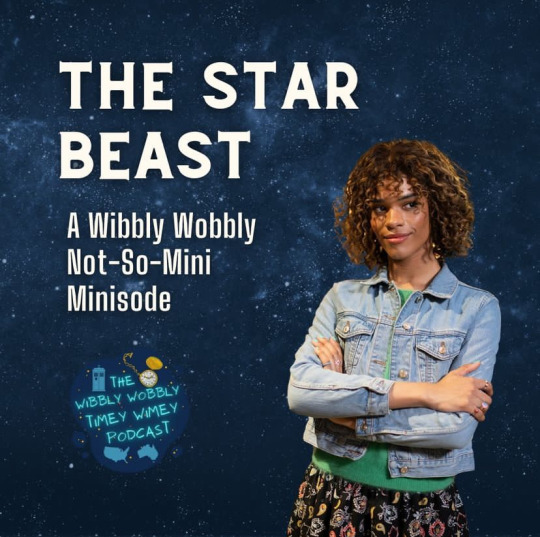
WE’RE SO BACK!
Our not-so-minisode is out for The Star Beast! We see a step forward in representation in this episode, and accessibility is something we take seriously here at Wibblypod as well. That’s why we always post transcripts for our episodes! You can find them on our website we also address the transgender representation in this episode with Rose (Yasmin Finney). Join us as we discuss character growth and allyship choices in this episode (and their real-world implications). Visit our highlights or check out the links in our bio to listen now.
#doctor who#the Star beast#rose noble#dwat60#the meep#David tenant#14th doctor#Donna noble#Catherine Tate#yasmin finney#transgender#transgender representation#non binary#non binary representation#gender pronouns#dr who#whovian#wibbly wobbly timey wimey#wibbly pod#Chicago tardis
1 note
·
View note
Text
https://www.makan.com.qa/tenant-representation/
0 notes
Text

🏢✨ Landlord Tenant Attorney Near Me in Queens, NY ✨🏢
Are you facing landlord-tenant disputes and need expert legal assistance in Queens, NY?
At Albert Maimone & Associates, we specialize in navigating the intricate realm of landlord-tenant laws with deep expertise and exceptional negotiation skills. 📜⚖️
Why choose us? Here's why:
✅ Expert Legal Services: Our team boasts in-depth knowledge of Local and State Laws, ensuring you receive top-tier legal services tailored to your specific situation.
✅ Exceptional Negotiation Skills: We excel in resolving disputes outside of court, offering unmatched negotiation prowess to achieve favorable outcomes for our clients.
✅ Aggressive Court Representation: In case your dispute escalates to court, we present your case persuasively and effectively, fighting for your rights with determination.
Remember, the right attorney can make all the difference in your case's outcome. With our experience, organization, and problem-solving skills, we're committed to securing your rights and easing your stress during this challenging time. 🤝
📍 Convenient Location: Our office is centrally located in the heart of Queens, easily accessible to residents of Bayside, Rego Park, Jackson Heights, Elmhurst, Flushing, and Forest Hills. We're here to ensure your journey through the legal process is as seamless as possible.
Don't face these challenges alone. Choose Albert Maimone & Associates, your trusted local landlord-tenant attorney. Call us today at ☎️ tel:7185555555 to speak with a dedicated attorney near you. Your rights deserve protection, and we're here to fight for you! 💪⚖️
#Queens Lawyer#Landlord Tenant Dispute#Legal Expertise#NYC Lawyer#expert representation#law firm#Queens law firm#attorney#Queens#NY
1 note
·
View note
Text
Tenant Representation Melbourne - Commercial Real Estate Services Guide
Expert tenant representation Melbourne services by FVG Property! Commercial real estate advocates securing better lease terms & workspace solutions.

#Tenant Representation#Tenant Representation Services#Tenant Representation Melbourne#Tenant Representative Melbourne#Commercial Tenant Representation
0 notes
Text
Kaufman Organization Closes on $35M Haymarket Building Ground Lease – Commercial Observer
The Kaufman Organization closed on a newly formed ground lease at The Haymarket Building in Manhattan’s NoMad, valued at $34.5 million. — Read on commercialobserver.com/2021/03/kaufman-organization-closes-on-35m-haymarket-building-ground-lease/
View On WordPress
#amir Korangy#Asset management# commercial buildings#Cap rate#Cash flow#Commercial mortgage-backed securities#Commercial property development#Commercial property inspections#Commercial tenant screening#Common area maintenance fees#Debt financing#Economic incentives#Equity financing#Exit strategies#Investment sales#Landlord representation#Lease assignments#Lease buyouts#Lease options#Property Leasing#Property surveys#Real Estate Contracts#Real Estate Law#Real Estate Negotiation#Real Estate Portfolio Management#Site feasibility studies#Subleasing
0 notes
Text

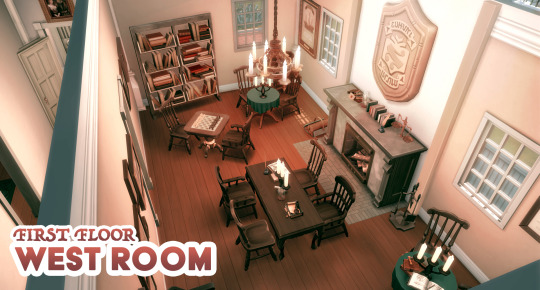
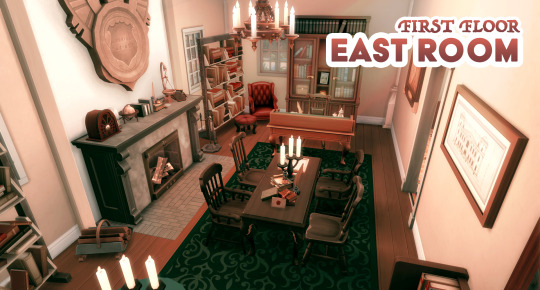
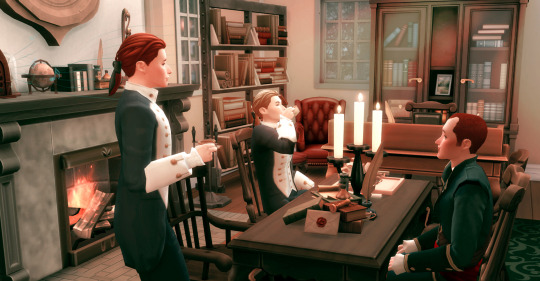
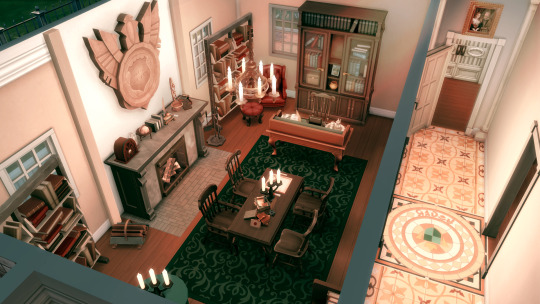
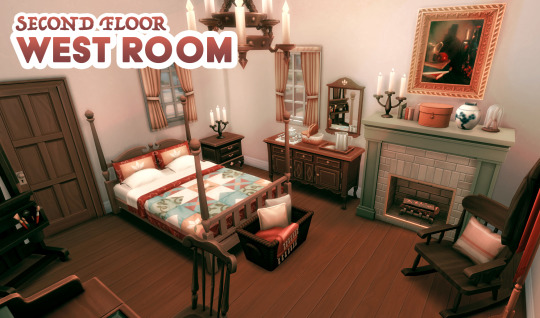
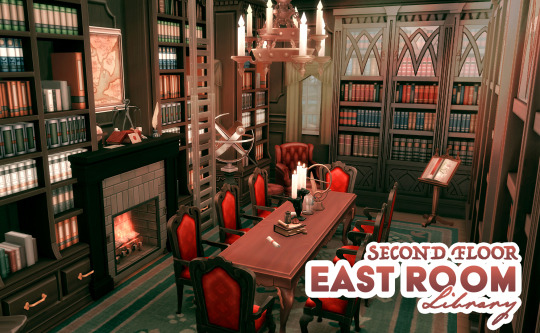
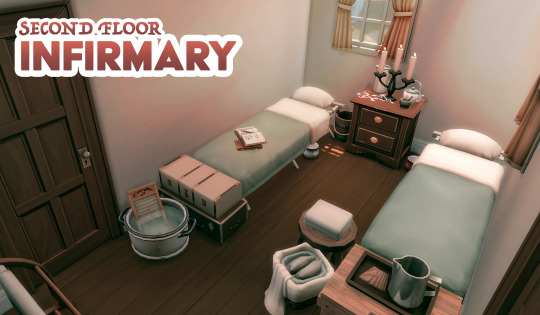

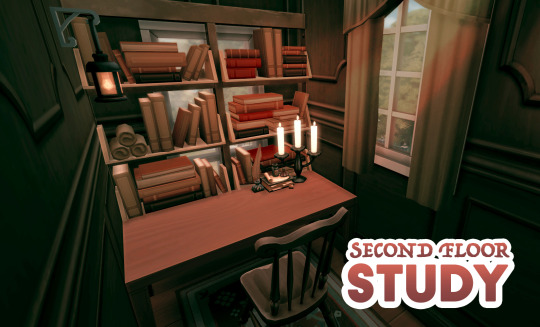
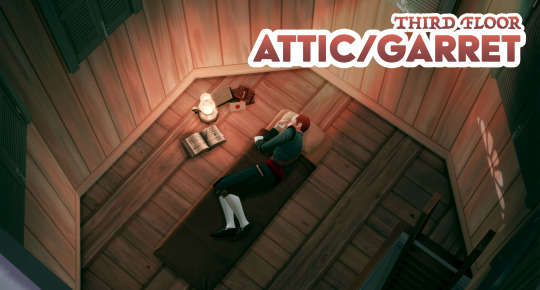


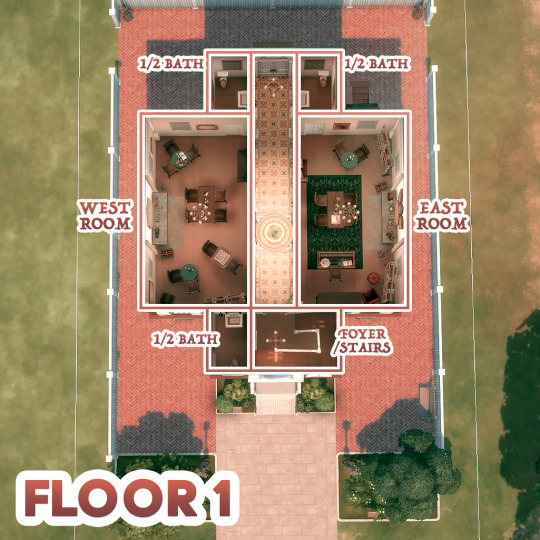
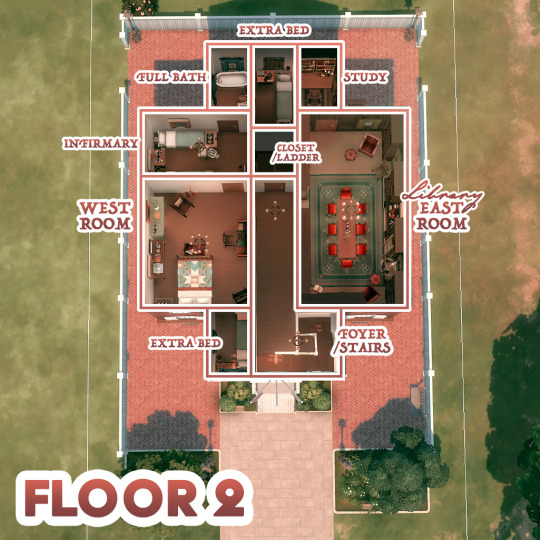
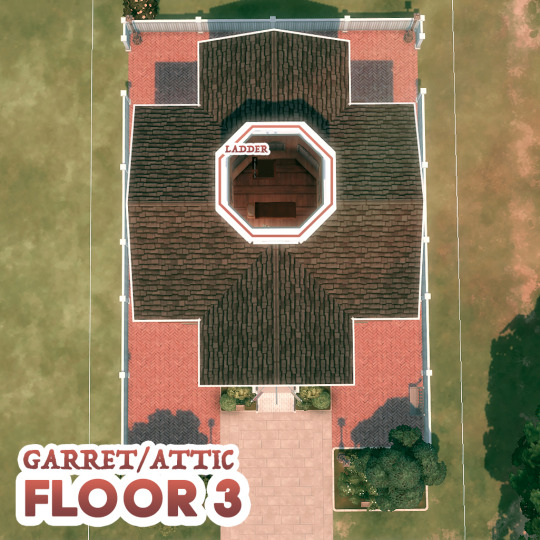

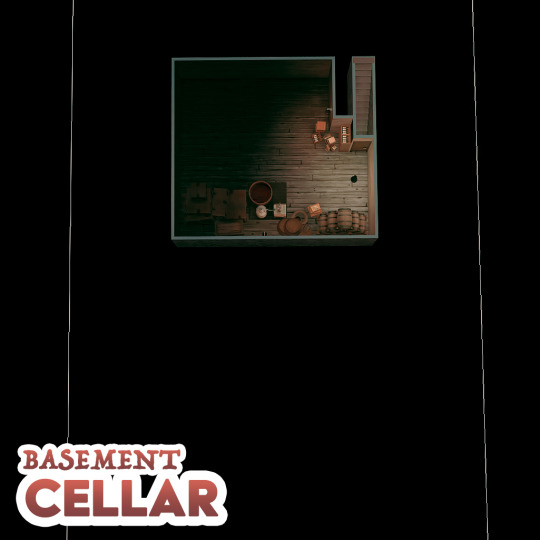
Carpenters' Hall - 30x20 (NO CC)
Carpenters' Hall in the Sims 4! Carpenters' Hall is a historic landmark - it hosted the First Continental Congress in 1774 and was home to Ben Franklin's Library Company, The American Philosophical Society, and the First Bank of the US (Source), just to name a few.
This building was historically used for different purposes, and its Rooms were rented out by different organizations. During the Revolutionary War, part of the first and second floor was used as a hospital. Ben Franklin's Library Company occupied the second floor until Dec 1791. The American Philosophical Society "rented the first floor West Room" from 1780-1789 (see the full timeline of Carpenters' Hall).
References: The official floorplans for the building are available here (Philadelphia Buildings and Architects). I referenced these floorplans alongside this essay on Carpenters' Hall by Charles E. Peterson (published in The American Philosophical Society's Transactions Vol. 43, Part I; accessed via the National Park Service archives), which includes written accounts of Carpenters' Hall as described by John Adams and others, and which ultimately served as my guide.
I tried to recreate Carpenters' Hall as it might've looked during the Revolutionary War, but because the building was undergoing changes during the War (i.e. its occupants, the state of the building itself), as well as the limitations of the game, this is not a completely accurate representation of Carpenters' Hall (see notes below cut).
This build combines some of the Hall's multifunctional purposes during the Revolutionary War: as a meeting place, infirmary, and Library. For some areas (i.e. the cellar, the garret/attic, etc; bathrooms are included for Sim functionality and gameplay), creative liberties were taken.
➜ download my TS4 builds: my EA ID is jhocaa / my TS4 builds
Notes:
I've placed tiles in the first floor hallway (the entire first floor of Carpenters' Hall is tiled), but those tiles were installed after the Civil War (Source) and likely would not have been there during the AmRevolution. I've included the tiles in the hallway in homage to this.
The first floor was, presumably, once partitioned by walls - to serve as rooms for tenants, such as The American Philosophical Society, who "rented the first floor West Room" - however, these walls no longer exist in the present day. You can see where walls once stood in these floorplan drawings of the first floor (indicated by the dotted lines).
There are many smaller rooms on the second floor (as seen in these floorplans) that are nondescript and could've been used simply as storage space. To represent the multifunctional purposes of Carpenters' Hall during the War, as well as to fit the gameplay needs of Sims, I turned them into functional spaces: infirmary, extra beds, full bath, study/desk room.
The library on the second floor (off-limits to the public) is based on the available photos on their website: carpentershall.org. This library, as seen in their photos, really belongs to The Carpenters' Company - and not Ben Franklin's Library Company. You can read more about the history of The Carpenters' Company library here. For the purposes of this build (and in-game), the library is one and the same.
The third floor (the attic space within the roof; the support beams, framework, etc) is omitted due to game constraints.
#amrev#18th century#carpenters hall#my builds#sims 4#sims 4 builds#historical#sims 4 historical#philadelphia#american revolution#american history#revolutionary war
64 notes
·
View notes
Text
Sometimes I forget how many celebrity cameos were in TAG! Even if they only usually showed up in one episode each (understandably common for TV voice acting, because big names cost more), but the amount they had was still very impressive. At the time it was pretty fun, seeing the announcement posts of who the upcoming special guest VAs were before a season aired, to look forward to what character they'd be voicing. One of many things I appreciate about TAG is how talented and varied the voice actors were.

OKAY WHY DID NO ONE TELL ME-
#I think abother thing I appreciate is that the voice actors were clearly chosen well in advance#so the characters they play were designed around them#obvs Tycho looks like David Tenant#but the one that really stood out to me was that Buddy has a prosthetic leg that exactly matches Adam Hills#and Buddy being a disabled character was never ever mentioned once as some sort of episode plot point#TAG characters were really amazing in terms of representation because they reflected the variety in the cast and got treated equally too
43 notes
·
View notes
Note
The amount of ppl who criticize Hazbin saying it’s stupid cuz no one in hell is innocent and Charlie’s plan is dumb. You sound like Christian fundamentalists: STOP IT!!!!!!
Anon you’ve actually vocalized something that I’ve been thinking about for a while now and it’s how tons of Hellaverse antis just… regard Christianity as being objectively correct. Even if they claim to be atheists they still treat the tenants of Christianity as being inherent to our existence and criticize Helluva Boss and Hazbin Hotel based on that assumption.
Like the people who constantly say “Valentino would be a better representation of Lust than Asmodeus because Val is a rapist!” are conceptualizing lust in the Christian sense, AKA believing the harmful idea that finding other people attractive is inherently predatory. It also reinforces the incorrect view that rape is about finding people attractive when it’s actually about power/control/sadism/entitlement. Which I thought was Feminism 101, but so called online “leftists” have been moving like evangelical right wingers for the past few years so I should really not be shocked at this development.
And like you said anon the hell thing is another huge Christian talking point. Even if everyone in hell was an evil bastard they don’t deserve eternal punishment. The idea of eternal punishment for temporary sins is insane and designed to scare people into converting to Christianity. If you believe someone should be punished forever for any reason then I suggest converting at your nearest Protestant church because you’d be a lot happier surrounded by people just as dogmatic as you.
I could go on because there’s so many examples. I’ll just end it here by saying stop calling yourself progressive if your view on Christianity is the same as my uber-religious meemaw who thinks saying “oh my god” is a one way ticket to meeting Satan himself.
32 notes
·
View notes